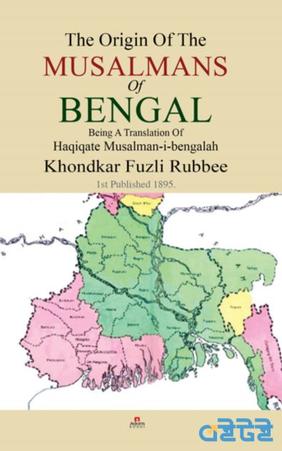

The Origin Of The Musalmans Of Bengal
৳ 200
About this book
Khondkar Fuzli Rubbee's book delves into the origins and growth of Bengal's Muslim population, as recorded in the Census of 1891. With meticulous research drawn from historical accounts, chronicles, and authentic sources, Rubbee sought to uncover the reasons behind the dominance of Muslims in Bengal and trace their lineage. His findings challenge the notion of forced conversions to Islam, instead asserting that the majority of Bengal's Muslims descended from the Muslim rulers of Bengal and Delhi, who governed the region between 1203 and 1764 CE. Through well-reasoned arguments supported by facts, figures, and historical evidence, Rubbee's work stands out as a remarkable contribution to understanding Bengal's history. Khondkar Fuzli Rubbee (1848–1917) was a distinguished scholar, thinker, and prolific writer on the social, political, and cultural history of Bengal. Born in Murshidabad, he was well-versed in Persian and English and authored three significant books on Bengal's history. For his contributions, he was honored with the title of Khan Bahadur by the British government. The book was translated by Mohammad Hasan Sharif, a journalist and historian from Dhaka with a background in statistics. Sharif, with a deep passion for history and literature, has authored several books, further enriching the narrative of Bengal's past.